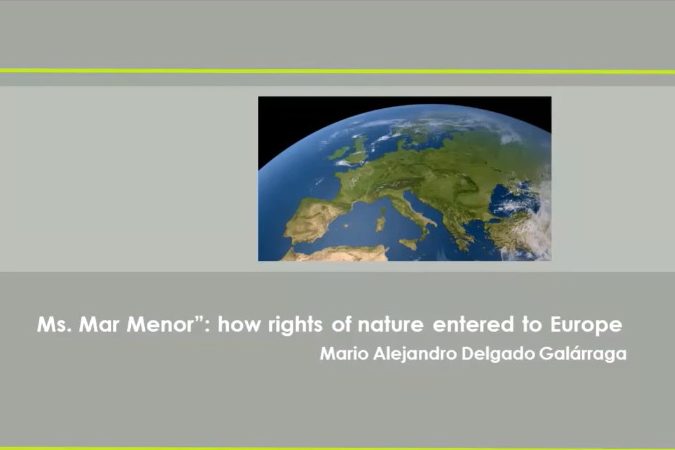“Ms. Mar Menor”: How Rights of Nature Entered Into Europe
Völkerrechtliche Tagesthemen: Spotlight (Episode 30)
Since 2008, when the Ecuadorian Constitution recognised and guaranteed the rights of nature, various countries have included this set of rights within their legal national framework in different ways, e.g. adopting constitutional texts (Ecuador and Mexico), legal acts (Australia, Bolivia, New Zealand, Panama, Spain, and Uganda), and court decisions (Bangladesh, Colombia, and India).
Recently, Spain passed a law that bestowed certain rights to the Mar Menor lagoon. This particular case clearly explains how the rights of nature entered Europe because of the important role played by civil society in the evolution of law and its law-making process. The popular initiative led to the recognition of the lake as a subject of rights by the Spanish legislative branch.
Thus, the scope of this lecture intends to briefly summarise how the Lagoon of Mar Menor was recognized as a rights bearer. First, it will aim to show the existing interaction between civil society and the environmental law-making process. Then, it will portray the most relevant legal arguments arising from this declaration. Finally, it will discuss the implications of this recognition in the international arena. This will provide a general overview of the current discussion about the rights of nature worldwide.
